How to Choose the Right Long-Distance Moving Company
Choosing the right long-distance moving company can save you thousands of dollars and weeks of stress. The right movers will handle your belongings with care, stick to their promised timeline, and charge fair prices. The wrong ones can turn your move into a nightmare with damaged items, surprise fees, and delayed deliveries.
This guide will walk you through everything you need to know to pick a trustworthy moving company for your long-distance move. You'll learn how to check if a company is legal, spot red flags that signal scams, and get the best deal possible.
Why Choosing the Right Moving Company Matters
Moving across state lines is different from local moves. Long-distance moves involve federal rules, higher costs, and more risks. The Federal Motor Carrier Safety Administration (FMCSA) received 2,851 consumer complaints about household goods movers in 2011, with the most common complaints being shipments held hostage, loss or damage, and deceptive practices.
When you hire the wrong company, you might face:
- Items held hostage until you pay extra fees
- Damaged or lost belongings
- Moves that take weeks longer than promised
- Hidden charges that double your bill
According to the Federal Motor Carrier Safety Administration, thousands of Americans report experiencing moving fraud each year. That's why doing your homework before hiring movers is so important.
Check If the Moving Company Is Legal
Verify Their DOT Number
Companies that operate commercial vehicles transporting passengers or hauling cargo in interstate commerce must be registered with the FMCSA and must have a USDOT Number. This is your first and most important check.
Every legal interstate moving company must have a U.S. Department of Transportation (DOT) number. The U.S. Department of Transportation requires this number for all companies that operate commercial vehicles transporting cargo across state lines. Here's how to verify it:
- Ask the company for their DOT number
- Go to the FMCSA website's mover search tool
- Enter the DOT number to check if it's valid
- Review their complaint history and safety records
Any moving truck crossing a state line is required to have a USDOT number. It helps authorities keep track of the vehicle's safety records, inspections, and compliance with various federal regulations.
Look for Proper Licensing
Different states have different rules for moving companies. Thirty-three states require in-state movers to have a federal DOT number. Always check what your state requires.
The moving company should clearly display their DOT number on:
- Their website
- Marketing materials
- The sides of their trucks
If a company can't provide their DOT number or gets defensive when you ask, find another mover.
Get Multiple Written Estimates
Never hire a moving company based on one estimate. Get a written estimate from several movers and compare them. The estimate should be based on an actual in-person inspection of your household goods.
In-Home Estimates Are Key
Trustworthy companies will send someone to your home to see what you're moving. They'll walk through your house, check your furniture, and ask about any special items.
Be suspicious if a company:
- Gives estimates over the phone
- Quotes prices without seeing your belongings
- Provides estimates that seem too good to be true
The mover does not offer or agree to an onsite inspection of your household goods, gives an estimate over the telephone or Internet — sight unseen is a major red flag.
Understanding Different Types of Estimates
Moving companies offer three types of estimates:
Binding Estimate: A binding estimate, also known as a binding quote or a binding contract, is an agreement that guarantees the total cost of the move based on the weight of the items and the services listed in the estimate. You pay exactly what the estimate says, no more, no less.
Non-Binding Estimate: A non-binding estimate is what your mover believes the cost of your move without guaranteeing a price. Your actual move cost will be determined on the actual services provided. The final cost can change based on the actual weight of your items.
Not-to-Exceed Estimate: With this type of estimate, long-distance or interstate movers will essentially put a cap on your costs. This means that even if some key details change, you won't be charged more. But you could be charged less.
Research the Company's Reputation
Check Online Reviews
Look up the company on multiple review sites:
- Better Business Bureau (BBB)
- Google Reviews
- Yelp
- Moving-specific review sites
Customer reviews are invaluable. Positive reviews from customers who have already experienced the moving process with a particular company provide insights into the mover's reliability and dedication.
Don't just look at the star rating. Read what customers actually say about:
- Whether items arrived damaged
- If the company stuck to their timeline
- Any surprise fees or charges
- How well the movers handled problems
Ask Friends and Family
Personal recommendations are worth their weight in gold. Ask people you trust about their moving experiences. They can tell you which companies to avoid and which ones did a great job.
Watch Out for Red Flags
Warning Signs of Moving Scams
Moving companies can sometimes act like they're too busy to talk to you or answer your questions. But the truth is, you're paying for a service, and you deserve to know what's happening.
Here are the biggest red flags:
Cash-Only Payments: The moving company does not accept credit cards and requires payments to be made by either postal money orders, direct wire transfers, or cash. Legit companies accept credit cards.
Large Deposits: A moving company shouldn't require a deposit of more than 20 percent of the estimated cost of the move. Many won't ask for any money until after they deliver your stuff.
No Physical Address: The company's Web site has no local address and no information about their FMCSA registration (DOT number or type of registration such as broker or carrier) or insurance.
Generic Phone Answering: When you call the mover, the telephone is answered with a generic "Movers" or "Moving Company," rather than the company's name.
Charging by Volume: Reputable moving companies (especially interstate movers) charge you based on the weight of your shipment, not how many cubic feet of space it would take up in a moving truck.
Door-to-Door Sales
Never hire a moving company that shows up at your door uninvited. Scam companies often use high-pressure sales tactics to get you to sign a contract on the spot.
Understand Insurance and Liability
Basic Protection Is Limited
Released Value Protection is the most economical option because it doesn't cost anything. It is offered by movers at no additional charge, but the protection is minimal. Under this option, the mover is responsible for no more than 60 cents per pound per article.
This means if your 25-pound TV gets damaged, you'd only get $15 back. That's not much for a $500 TV.
Consider Full Value Protection
Under Full Value Protection, your mover is responsible for the replacement value of lost or damaged goods in your entire shipment. This is the more comprehensive, but also more expensive, option for protecting your belongings.
Check Your Homeowner's Insurance
Some homeowner's or renter's insurance policies cover your belongings during a move, but many don't. According to Consumer Reports, homeowners insurance covers your belongings at home, in transit, and in storage, but it likely won't cover damage to your items that occurs while movers are packing or handling them.
Ask the Right Questions
When talking to potential movers, ask these important questions:
About Their Service
- How long have you been in business?
- Can you provide local references?
- What's included in your estimate?
- How do you handle damaged items?
- What's your policy on delays?
About Costs
- Are there any extra fees not shown in the estimate?
- How do you charge for things like stairs or long carries?
- What forms of payment do you accept?
- When do I need to pay?
About the Move
- Will you pack my items or do I need to?
- What items can't you move?
- How long will my move take?
- Can I track my shipment?
Compare Moving Companies
Don't Just Pick the Cheapest
If you hire a mover based solely on the lowest price, you may be sacrificing other things that are actually more important, like getting your possessions moved safely and delivered on time.
The cheapest estimate might be a sign of:
- A company that will add surprise fees later
- Poor quality service
- Potential scams
Look for Value, Not Just Price
Consider these factors when comparing companies:
- Experience: Companies that have been around longer usually have better processes
- Equipment: Modern, well-maintained trucks are less likely to break down
- Training: Ask if their crews are trained and background-checked
- Insurance: Make sure they have proper insurance coverage
Get Everything in Writing
Never rely on verbal promises. Get all agreements in writing, including:
- The total cost
- What services are included
- The pickup and delivery dates
- The company's liability for damages
Special Considerations for Long-Distance Moves
Timing Matters
Long-distance moves take longer than local ones. Cross country relocations are a far more challenging event than a simple move across town. Everything from organization and route planning to safe packing and moving equipment will influence the efficiency of the process.
Plan for:
- Longer transit times
- Possible delays due to weather or traffic
- Time to unpack and settle in
Storage Options
Sometimes your new home isn't ready when your stuff arrives. Ask potential movers about:
- Short-term storage options
- Storage facility locations
- Additional costs for storage
- How to access your items if needed
Cross-Country Regulations
Different states have different rules about what can be moved across state lines. Common restrictions include:
- Hazardous materials
- Perishable food
- Plants (some states don't allow them)
- Certain chemicals or propane tanks
Final Steps Before Hiring
Verify Insurance
Make sure your chosen company has proper insurance. Interstate movers are subject to regulation by the Federal Motor Carrier Safety Administration (FMCSA). They must register with the federal government, obtain a USDOT number, and comply with all relevant rules and regulations.
Read the Contract Carefully
Before signing anything, read every word of the contract. Look for:
- Hidden fees or charges
- Unclear language about delivery times
- Unfair liability terms
- Cancellation policies
Prepare for Moving Day
Once you've chosen a company:
- Confirm dates and times
- Prepare an inventory of your belongings
- Take photos of valuable items
- Keep important documents with you
- Have payment ready in the agreed form
What to Do If Something Goes Wrong
Filing Complaints
If you have problems with your move, you can file complaints with:
- The Federal Motor Carrier Safety Administration
- Your state's consumer protection agency
- The Better Business Bureau
- Your local attorney general's office
File a complaint electronically using the Household Goods Consumer Complaint Web Site or by dialing the toll-free number at 1-888-DOT-SAFT (1-888-368-7238).
Know Your Rights
Movers are required by law to deliver your goods for no more than 10% above the price of a nonbinding estimate. This is known as the 110 percent rule, as outlined in the Federal Motor Carrier Safety Administration regulations.
You also have the right to:
- Be present when your shipment is weighed
- Receive a copy of "Your Rights and Responsibilities When You Move"
- File damage claims within nine months of delivery
Choose Last Stop Moving for Your Alberta Move
If you're moving within Alberta or from Alberta to another province, Last Stop Moving offers reliable long-distance moving services. We understand that every move is unique, and we work hard to make your transition as smooth as possible.
Our team provides:
- Free, detailed estimates
- Trained and background-checked movers
- Transparent pricing with no hidden fees
- Comprehensive packing services
- Safe and secure transportation
We also offer storage solutions if you need temporary storage during your move.
Final Thoughts
Choosing the right long-distance moving company takes time and research, but it's worth the effort. Start by checking that any company you consider has a valid DOT number and proper licensing. Get multiple written estimates, read reviews, and watch out for red flags like cash-only payments or estimates that seem too good to be true.
Remember, the cheapest option isn't always the best. Look for a company that offers good value, has a solid reputation, and makes you feel comfortable throughout the process. Take time to understand your insurance options and read any contract carefully before signing.
A good moving company will be happy to answer your questions, provide references, and work with you to make your move as stress-free as possible. With the right preparation and the right movers, your long-distance move can be the start of an exciting new chapter in your life.
Ready to get started? Contact Last Stop Moving today for your free moving estimate. Our experienced team is here to help make your long-distance move a success.



